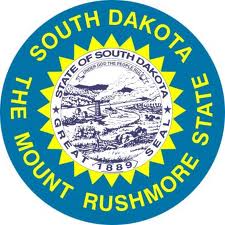 South Dakota regulates three forms of legalize gambling. There is a traditional lottery, video lottery and casinos. The lotteries provide substantial revenue to the state. Casinos are only legal in Deadwood and on tribal land.
South Dakota regulates three forms of legalize gambling. There is a traditional lottery, video lottery and casinos. The lotteries provide substantial revenue to the state. Casinos are only legal in Deadwood and on tribal land.
A statewide smoking ban passed in 2010 devastated video lottery revenue. It also affected Deadwood gaming revenue. The smoking ban did not apply to tribal casinos. Deadwood gaming revenue has rebounded since bet limits were raised from $100 to $1,000. This only helped a small number of casinos in the state that opted to improve surveillance and keep more cash behind the cage.
Proposals to Improve Deadwood Gaming
There are two proposals that would attempt to increase Deadwood gaming revenue. HB 1123 would allow alcohol to be sold 24 hours a day in casinos that also offer a hotel. It passed the House and made it out of committee in the Senate. It was defeated in the Senate 20-15 on March 4.
House Joint Resolution 1001 would allow live craps, roulette and keno in Deadwood. It would also allow tribal casinos to spread the new games due to the IGRA. It passed the House and Senate. This constitutional amendment will go before South Dakota voters in November.
Video versions of roulette and keno are already available in Deadwood. Virtual craps was once offered, but those devices became obsolete.
Video Lottery Growth Not Approved
The South Dakota Video Lottery is one of the most controversial issues in the state. It allows establishments that serve alcohol to also spread video gambling. This includes bars, restaurants and truck stops. Allowed games include slots, keno, blackjack (with poor rules), video poker and bingo. By law, the games may not return more than 92 percent to players.
The current maximum bet on these devices is $2 with a maximum payout of $1,000 per game. Video lottery supporters hoped to raise the bet limit and maximum prize. There was also an attempt to add more games. All of these measures failed to gain traction in the legislature.
One hope is to allow video lottery locations to spread up to 15 games through SB 180. The state currently allows retailers to offer 10 devices. Video lottery operators have already found a way around the 10-max law. Some sites have combined two suite numbers with one attendant in the middle of the business and installed 20 machines. This apparently qualifies as two video lottery establishments.
SB 180 has already passed the Senate. It made it out of a House Committee and is awaiting a full vote.
South Dakota Gambling Competing Against Itself
One of the biggest problems in the South Dakota gaming industry is competition from within. Deadwood is in a remote area that can be difficult to travel to in the winter. This means that it must entice gamblers away from local video lottery terminals. The hope is that craps, roulette and keno may do that.
The video lottery was hoping to raise bets and add new games that would keep players from having to go to Deadwood and tribal casinos. The best way for video lottery to compete with traditional casinos in the state would be to offer competitive returns to players.
Deadwood is within a reasonable drive of the coal mines of Wyoming and the oil fields of North Dakota. Both are perfect opportunities to market to Deadwood’s demographics where disposal income is available. Better games and a wider selection could help draw those players.
100% up to $3,000 Bonus
Bovada is our most recommended ONLINE CASINO and POKER ROOM for US players with excellent deposit options. Get your 100% signup bonus today.


Leave a Reply
You must be logged in to post a comment.